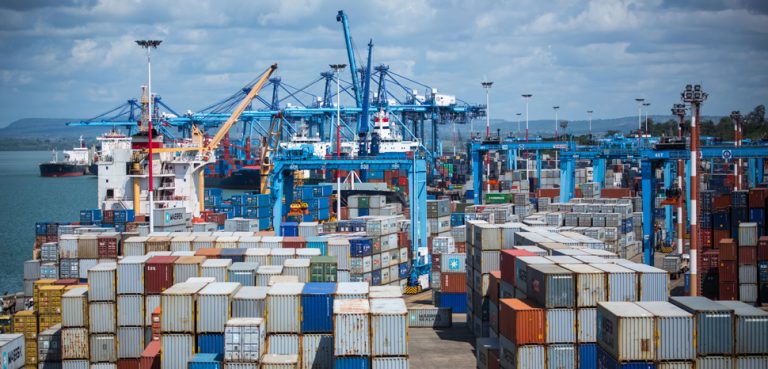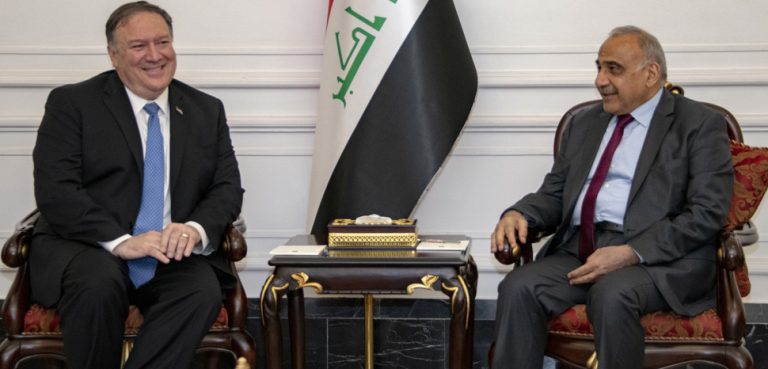In recent months, several governments have announced their intention to establish international arbitration centers. This is a noteworthy trend as these states are predominantly developing nations.
The fact that many developing nations are turning to international arbitration as a way to attract financial investment and increase their country’s pedigree abroad is a significant development that will have repercussions in the arbitration industry.
The New Arbitration Centers…
A quick perusal of recent developments in the realm of arbitration demonstrates that several developing nations are either planning or have recently opened their own arbitration centers. For example, in 2018, the International Arbitration Centre, part of the Astana International Financial Centre, was officially launched. Other arbitration centers located in developing nations include the Mumbai Centre for International Arbitration; and the Saudi Centre for Commercial Arbitration.
As for upcoming centers, there are several initiatives worth mentioning. For example, in mid-January a delegation from the Oman Centre for Commercial Arbitration traveled to Qatar to discuss co-operative ties between Qatar and the Oman Chamber of Commerce and Industry (OCCI), “especially in the areas of commercial arbitration.” Reports detailing Oman’s intention to create an arbitration center appeared around 2015, but it was only established in 2018 via Royal Decree No 26/2018. Oman is now looking to Qatar, which has its own Qatar International Center for Conciliation and Arbitration, for assistance to get its arbitration center started.
Also in November 2018, Uzbekistan announced the creation of the Tashkent International Arbitration Center (TIAC), which will operate under the country’s Chamber of Commerce and Industry. Meanwhile, in late January 2019, during an international conference on arbitration, the minister of financial services, trade & industry and immigration in The Bahamas, Brent Symonette, reiterated the commitment of this Caribbean nation to become an international arbitration hub. Even more, the governments of Singapore and the People’s Republic of China agreed in late January “to set up an international panel of mediators, to better handle disputes that may arise from projects under the multi-billion dollar Belt and Road Initiative.”
Moreover, other developing states could establish their own arbitration centers in the near future. For example, a February 12 op-ed published on Africa.com, titled “Africa: Mining The Value Of Alternative Dispute Resolution,” argues that:
The African continent is building itself into a hub for international commercial arbitration, with South Africa, as well as Rwanda and Mauritius leading the charge. Not only is the continent garnering expertise in international arbitrations; but, from a cost perspective, counsel costs and the general expense of arbitrating are also far more reasonable when compared to other seats in countries such as London or Paris.
We may soon add even more nations to the growing list of international arbitration centers, many of which may be based in Africa.
… Will Have to Struggle Against other Centers
At this point, it is important to stress that commercial arbitration is an industry, and there are plenty of other arbitration centers around the world. The most well-known arbitration centers include the International Chamber of Commerce, headquartered in France; the International Centre for Settlement of Investment Disputes, of which the proceedings usually take place in Washington DC; Sweden’s Arbitration Institute of the Stockholm Chamber of Commerce; and the Hong Kong International Arbitration Centre.
In other words, any new player will have to compete for clients with more established and reputable arbitration entities.
Potential New Seats Are Confident
The aforementioned list demonstrates that commercial arbitration centers are en vogue right now. A successful arbitration center can help a country’s image grow in the international arena, not to mention help protect the country’s business interests. Moreover, arbitration centers are ideal for local economies, as they imply greater usage of airports, hotels, and other facilities as arbitrators and clients travel to said centers for their cases.
Part of the challenge for any new arbitration center to be successful is that it has to appear attractive to potential clients, hence local governments have to “sell” the image of their nation. For example, the aforementioned Bahamian Minister Symonette, argued why The Bahamas would be a great location for an arbitration center:
Our accessibility by air transport to several major continents; our infrastructure by way of hotels and convention centers; our advanced technology; a long standing commitment to the rule of law; stable government; our trained judiciary and let us not forget an experienced and skilled cadre of professional lawyers, accountants, trust officers and insurance specialists to name a few. These attributes should not be taken lightly as they give The Bahamas a competitive advantage over many competitors.
There are reasons for these governments to be confident about their possible success as some arbitration centers in developing regions are doing quite well. For example, the Kigali International Arbitration Centre is an African success story, and according to the Rwandan daily The New Times, in early 2019 the center registered its 100th case.
Similarly, Kazakhstan has high hopes for the AIFC, which is a conglomerate of different financial entities, aimed at attracting global investors to the Central Asian state. Apart from the previously mentioned Arbitration Centre, the AIFC includes the Astana International Exchange; the AIFC Court, which “provides a common law court system for the first time in Eurasia;” and other administrative agencies.
Analysis
While Kigali can be regarded as a success story, we would be neglectful if we did not mention some of the challenges that new international arbitration centers will face as they try to make a name for themselves.
One obvious challenge is convincing legal professionals that they should, in turn, convince their clients to utilize a new arbitration center rather than a more well-known institution, like the ICC. After all, nobody wants to be the “guinea pig” of a new arbitration center.
One positive aspect of the AIFC’s IAC is that it is its own entity, independent from the Kazakhstani judicial system and other government agencies. This, combined with its army of arbitrators, will hopefully encourage clients to turn to it due to its impartiality. On the other hand, the TIAC, for example, will operate under the Chamber of Commerce and Industry of Uzbekistan, meaning that potential clients may perceive it to be inherently biased in favor of the Uzbek government. The perception of impartiality of arbitrators and the system as a whole is a critical pillar necessary for any arbitration center to flourish.
An additional issue to keep in mind is the effect that these new entities will have on international arbitration as a whole. How will these new centers affect commercial arbitration as we know it? How will the increase of “supply” affect the “demand”? Future analyses about commercial arbitration should pay attention to this issue.
The Future of Arbitration: Technology and Cryptocurrencies
The Shenzhen Court of International Arbitration in China has ruled that “bitcoin is not a legal currency” but that “does not prevent it from being protected by law as a property.” In fact, several hotels in major Chinese now accept cryptocurrencies, case in point the Ethereum Hotel, which offers discounts to those that pay their bills using the Ether cryptocurrency.
This ruling clearly demonstrates that state regulation should be a priority and, thankfully several governments have drafted bills to regulate cryptocurrencies. For instance, the government of India has announced that a draft legislation on crypto regulation is in its the final stages. Meanwhile, the government in Kiev announced its intention to legalize cryptocurrencies and draft relevant regulations, an initiative led by the ministry of economy. As for the Russian Federation, it has already enacted bills on this matter, and, according to reports, at least 51 cryptocurrency ATMs operate in compliance with the current regulations in Russia.
However, bills and regulations are not enough to fully guarantee the protection of property rights. A relevant dispute settlement mechanism is necessary for that. This is the reason why the Russian Industrialist Union has launched an Arbitration Body for Crypto Disputes. Similarly, Uzbekistan’s aforementioned TIAC will be a platform to settle disagreements over investments, intellectual property and, interestingly, crypto-related technologies.
Resolving the disputes arising from cryptocurrencies not only require arbitrators and laws, but also a technical knowledge regarding how a virtual currency, like Bitcoin, exists, how much it is worth, and how can it be tracked.
Contrary to litigation, where parties cannot select a judge of their preference, arbitration is an alternative dispute settlement mechanism that allows parties to appoint an arbitrator that is a specialist in subject of the dispute. As Redfern and Hunter correctly suggested “it is, above all, the quality of the arbitral tribunal that makes or breaks the process” (Law and Practice of International Commercial Arbitration, 4th Ed, 2004). Appointing authorities is a critical component of the arbitration process, in order to be represented in the most professional and efficient way possible, parties must be sure that their case is heard by highly specialized arbitrators. Moreover, as it is not necessary to be represented by lawyers, parties may be represented by themselves or by financial technology specialists.
While this analysis has focused on new arbitration centers in developing nations, the rise of cryptocurrencies will also have an effect on how arbitration is conducted. Hence governments, parties, as well as current and future arbitration centers must think of how cryptocurrencies will affect future contracts.
Final Thoughts
Nations like Kazakhstan, The Bahamas, Qatar and Uzbekistan are in the process of setting up their own international arbitration centers, or have recently created them. This is an interesting strategy as these countries seek greater international recognition, and other benefits that come from having a respected arbitration center within their territory; the center in Kigali stands as an example of a successful arbitration center in a developing nation. Nevertheless, the arbitration industry is fairly well-established by now, and these new entities will have to complete against the ICC or ICSID.
Commercial arbitration is an evolving industry, it will be important to monitor how new centers and the rise of cryptocurrencies affect it in the near and long term.
About the authors: Wilder Alejandro Sanchez is an analyst based in Washington DC who focuses on geopolitical, military and cyber security issues. Lucia Scripcari is a Moldovan student finishing her degree in law at Istanbul Sehir University (Turkey).
The views expressed in this article are those of the authors alone and do not necessarily reflect those of Geopoliticalmonitor.com or any institutions with which the authors are associated.




